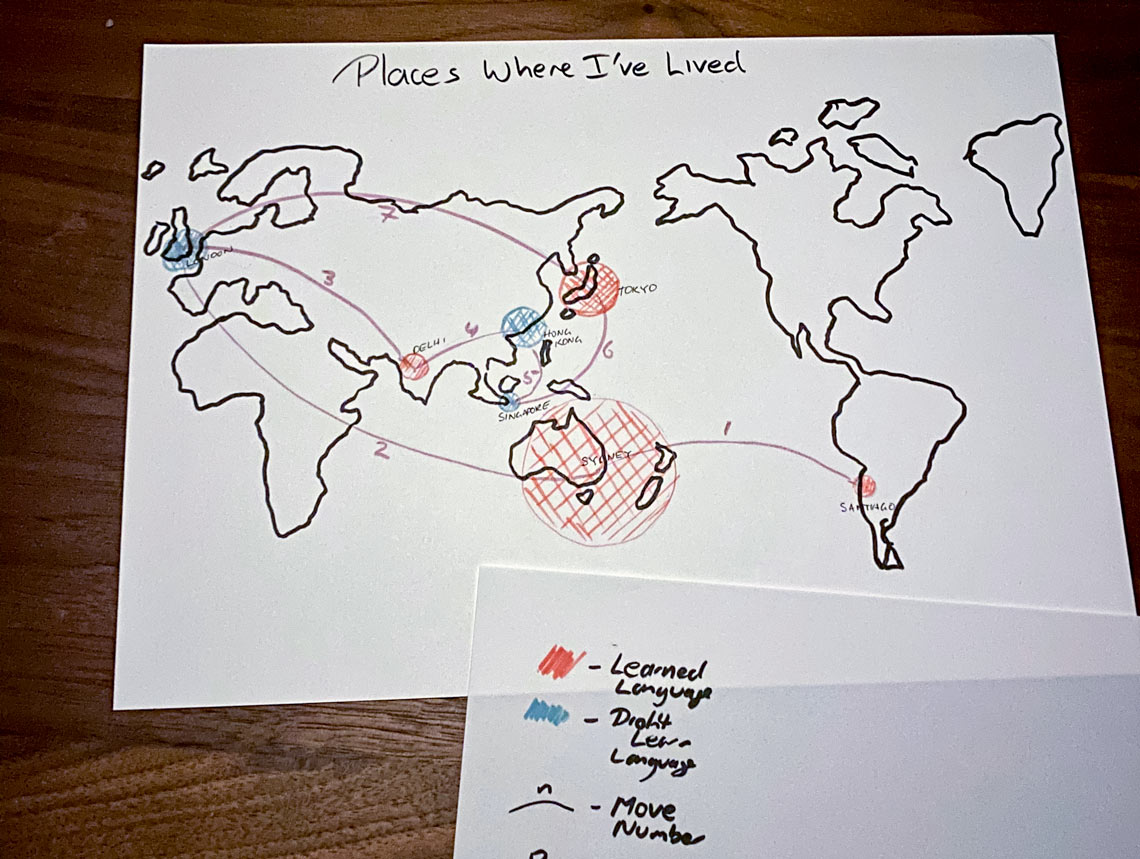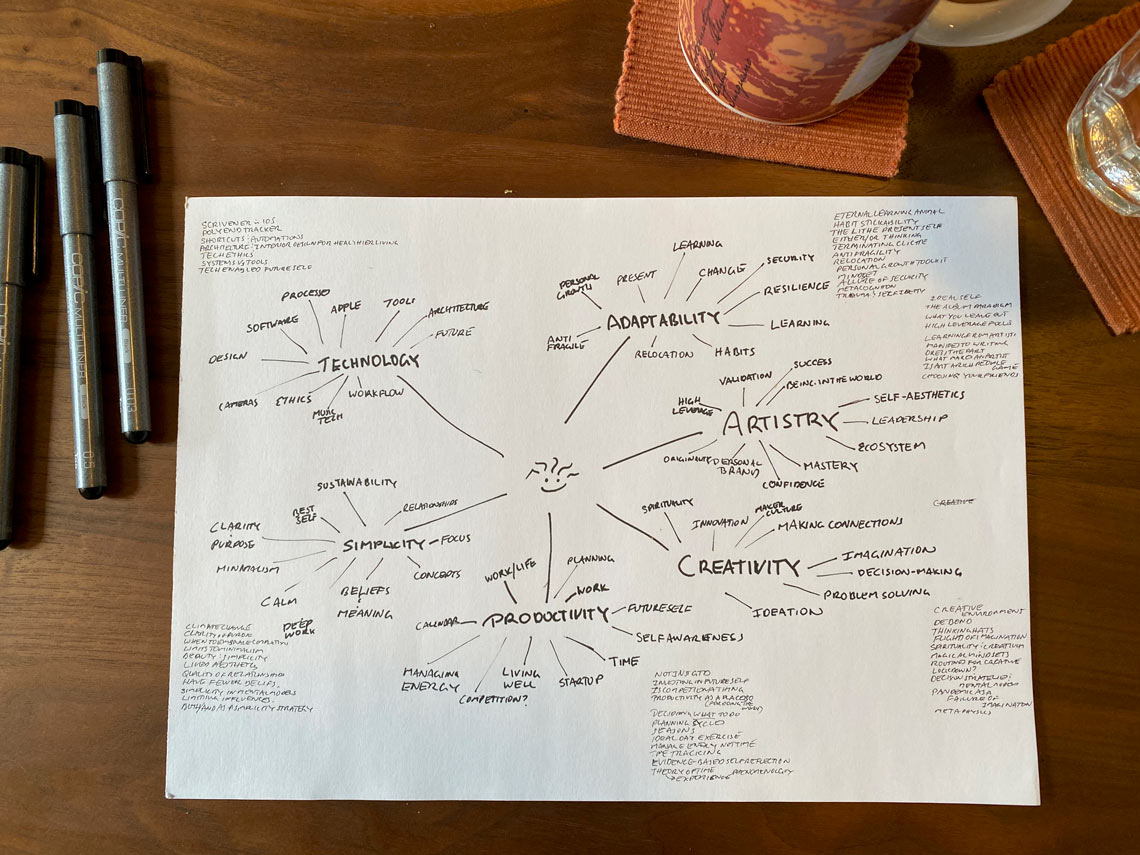Make A Map Seasonal Theme
Alongside a yearly theme, I’m also an advocate of seasonal themes. They help keep your yearly theme fresh and in the forefront of your mind. My theme for this season is the map.
I’ve moved around a bit. I’ve called 16 houses and apartments home since I became an adult. In six countries. That’s a lot of packing, unpacking, and trying to feel at home in new neighbourhoods.
One thing I like to do, a way to locate myself in a new place, is to draw a map.
I don’t mean copy a map, from a book or website. I mean take a piece of blank paper and try to draw a map from memory. Name what you know. Leave blank what you don’t. And see what you end up with.
Why not try it now? Take a moment and sketch your neighbourhood. Fill in only the places you can remember. Leave blank anything you’re unsure about.
It won’t look like a “proper” map. There’ll be all sorts of “mistakes.” That’s sort of the point. Your map will highlight the things that matter to you.
On my map a lot of nearby streets have no names. But all the local cafes are clearly marked. I can locate only one or two bus stops. But every pond and prominent tree in the local park is accurately located.
Of course there are accurate maps. A remarkable amount of craft and science goes into making them. Those aren’t the kind of maps I’m thinking about.
Maps can also be a way of describing how we experience the world. That’s why my map (and probably yours as well) has errors and omissions. Why remember the names of streets we never walk down?
These personal maps capture the slice of reality we hold in our imagination. The world as it activates our senses and captures our attention. That’s why, with Imagination as my yearly theme, I’ve decided to take the seasonal theme of Map-Making.
Personal Maps As Meaning-Making
Last year I took an online workshop in data visualisation with the brilliant Valentina D’Efilippo. IL4 One exercise was to draw a map of the world, freehand and from memory. Then use that map to represent two sets of data of personal interest.
One student used their map to show where the books they’d read during the pandemic were set and and where the authors came from. Another showed the cuisines of the world they’d tried and the ones they wanted to explore.
For mine, I decided to show places I’d lived, how long I’d lived there, and whether I learnt the local language. Yes, that’s three data points. I know, I know, immigrant overachiever syndrome.

There’s a common assumption in expat circles that one way to minimise culture shock and increase your sense of belonging is to learn the local language. I tend to believe this as well.
But my map suggested something different. There were places where I didn’t learn the local language but felt a sense of belonging, like Hong Kong, and others where I knew the language but struggled with terrible culture shock, like the UK.
Drawing the map helped me understand the experience.
Maps And Experience
It’s common in business, design, and programming to talk about mapping customer experience. This is important because the experience someone has using an app or website isn’t always what the creators hope it will be. Just because it seems easy to use to you, as the creator of a product, doesn’t mean it will be easy for its users.
This isn’t a new idea. Retailers have long mapped the way in which customers travel through shops and supermarkets. That’s influenced the way stores are designed and where advertisements and items are placed.
It’s fascinating to map your own experience and work in a similar way.
See how well you can draw a map, a plan view, of your home. Can you remember where all the power points are? Or correctly label what’s in all the cupboards and drawers?
Mapping the way you work is also fascinating. Not just your physical space, but digtial spaces as well. How do you move from one app or site to another?
And of course there’s mind-maps as well.

There are all sort of aspects of our daily lives we could map out.
The Philosophy Of Personal Map Making
Why do this? Because maps don’t just show us our reality. They make us question it. What can we see, what’s missing, what’s left to explore. And how we can explain it all.
Engaging the imagination to question and explore our current reality feels urgent right now.




